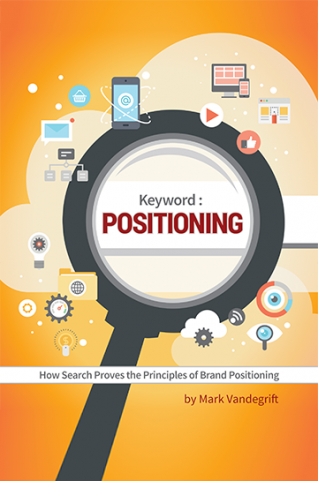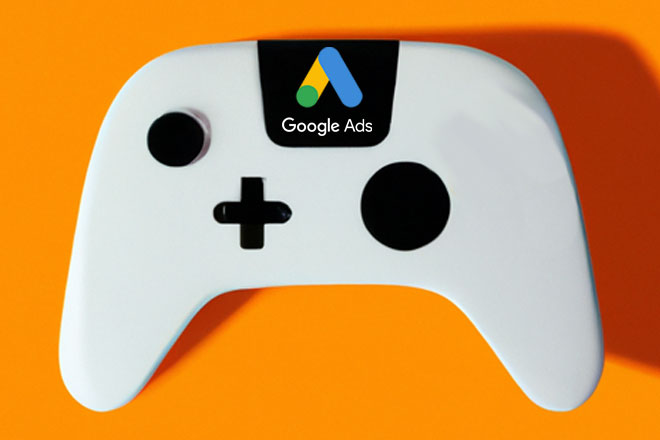If you’re a gamer, you know what it means to have a cheat code. For those who don’t game, consider these your five “secret sauces” that will bring unbelievable flavor (success!) to your Google Ads campaigns. These are compliments of the area’s leading Google Ads agency, Innis Maggiore.
Google Ads should be a part of almost every business’ marketing plan, in good times, as well as not so good. Paid search, over which Google Ads reigns, is one of the few media options where you only pay for interest when a prospect searches for a keyword that matches your campaign, then clicks on your ad. That’s why it’s known as pay-per-click or cost-per-click. You really can’t find a better bang for your buck in the advertising world.
The more common way to pay for media is cost per impression, which is incredibly hard to track, and most impressions are wasted because the prospect really isn’t a prospect or isn’t interested in what you’re offering at the time the impression is made. With paid search, the prospect is searching for the service or product you offer. Almost 0% waste. But this Google Ads agency isn’t here to convince you to use Google Ads. Instead, you’re looking for the cheat codes to make your Google Ads work better.
By the way, these cheat codes won’t make you a cheater. They’ll simply make you more successful if you implement them and give you a leg up on the competition (assuming they aren’t reading and executing these cheat codes, too). These codes are simply from one Google Ads agency with the knowledge to help you supercharge your Google Ads results and improve your ROI.
Cheat Code #1: Search Engine Optimization (SEO) Your Landing Page
Few realize how SEO and paid search are just two sides of the same coin. With Google Ads’ quality score, SEO plays a big part in bringing down the cost of your bid while still achieving a top three average position. Beside that, relevance is always your friend. The more aligned the keywords are in the campaign to the landing page, the more the prospect will feel you delivered on their click.
Most campaigns pick one landing page and point the entire campaign to it. Most commonly, this is the home page. However, that’s a critical mistake. As mentioned, the landing page needs to deliver on relevance. Don’t make the prospect find your content they already searched. Instead, deliver it to them on a silver platter by properly SEOing the destination URLs to the same core keywords of your individual ad groups.
Cheat Code #2: Develop Properly Positioned Landing Page Content
If you’ve made the effort to get the click, don’t leave the prospect dangling. The content of the landing page will do most of the work to convert a prospect into a lead/sale. If a prospect gives you the time to share your story, then you need to quickly answer the question, “Why should I buy from you versus the competition?”
This is where positioning comes in. Positioning’s #1 job is to communicate to the prospect a customer-relevant and competitively differentiated idea. If you don’t know how to express your position on a landing page, call us soon. We can help. Otherwise, you’re wasting your money, not only on Google Ads, but pretty much all your marketing.
And don’t forget to ask for the sale. Give the prospect a frictionless way to request a quote, make an inquiry, or buy your product.
Cheat Code #3: Write Differentiated and SEO'd Ads
With Google Ads’ dynamic ads, writing well-crafted ads is harder than ever because Google serves up text ads in random fashion. With four headlines and an almost unlimited number of descriptions, you won’t know for sure which headlines and descriptions will appear together, in what order, nor how many of each. Its preview tool is decent, but you’ve given Google the right to serve up a 43 x 123 (assuming four headlines and a dozen descriptions). At least I think that’s the math?! No matter, it’s a lot of potential combinations.
The cheat code here is to avoid the lazy ad writing. Each headline and each description (cutline) must be position-power-packed. With such few characters allowed, that can be tough. The goal is to make each one unique to you. If your competitor can’t say it, that’s the ideal ad writing. We recommend using your prospect’s hierarchy of needs based on your unique value proposition and write each headline and description based on those.
But wait, there’s more… in this case, not “good” more. Google wants relevance to the keyword grouping, so when you write these ads, inserting the core keyword is critical. Your Quality Score will be impacted by it, so the more you include the core keyword, the lower your bid should be to maintain a top average position.
Cheat Code #4: Tightly Group Your Keywords
This cheat code is the most often underused when we pick up a campaign from another manager. When you set up your campaign, don’t stuff all your keywords into a single ad group. On average, each ad group should max out around ten keywords. There are exceptions, but we typically see dozens if not hundreds of keywords in a single ad group. The idea is that the keywords in a single ad group share not just one, but maybe two or three words within the keyphrase.
This cheat code speaks again of relevance. The ad should point to a landing page that is SEO'd to the same keyword theme of each ad group. And each ad group should be relevant unto itself based on tightly related keywords. Like the other codes, the Quality Score will be impacted positively if you use this cheat code.
Cheat Code #5: Pay Attention
It used to be OK to let your Google Ads campaigns sit for a while without managing or optimizing them. That’s so 2005. Google’s algorithms are churning 24/7/365 at hyper speed and minor moves in the market can change the results of your campaigns. We’re not saying you need to babysit them 24/7 but checking in on them once or twice per week, especially in the early days of a campaign, is critical.
The most common “miss” in management is negating terms that were served up because of the keywords on which you’re bidding. We saved one client more than $7,000 per year by negating a keyword that was eating up a good portion of the company's budget, and it was on a keyword completely unassociated with its products and services.
Managing and optimizing your Google Ads on a regular basis is important, and having regular communications on the quality of leads with your sales team is equally important. This feedback will help you know which conversions are quality and which are not. Otherwise, you’re in a vacuum and you may be optimizing to the wrong KPIs.
A Google Ads Agency — the One-Click Cheat Code
If this is just too much for you to implement, don’t hesitate to reach out. We manage Google Ads for large and small clients alike, and no campaign is too big or too small. Everyone likes a cheat code and if you want it with one call or click of the button, contact us.



